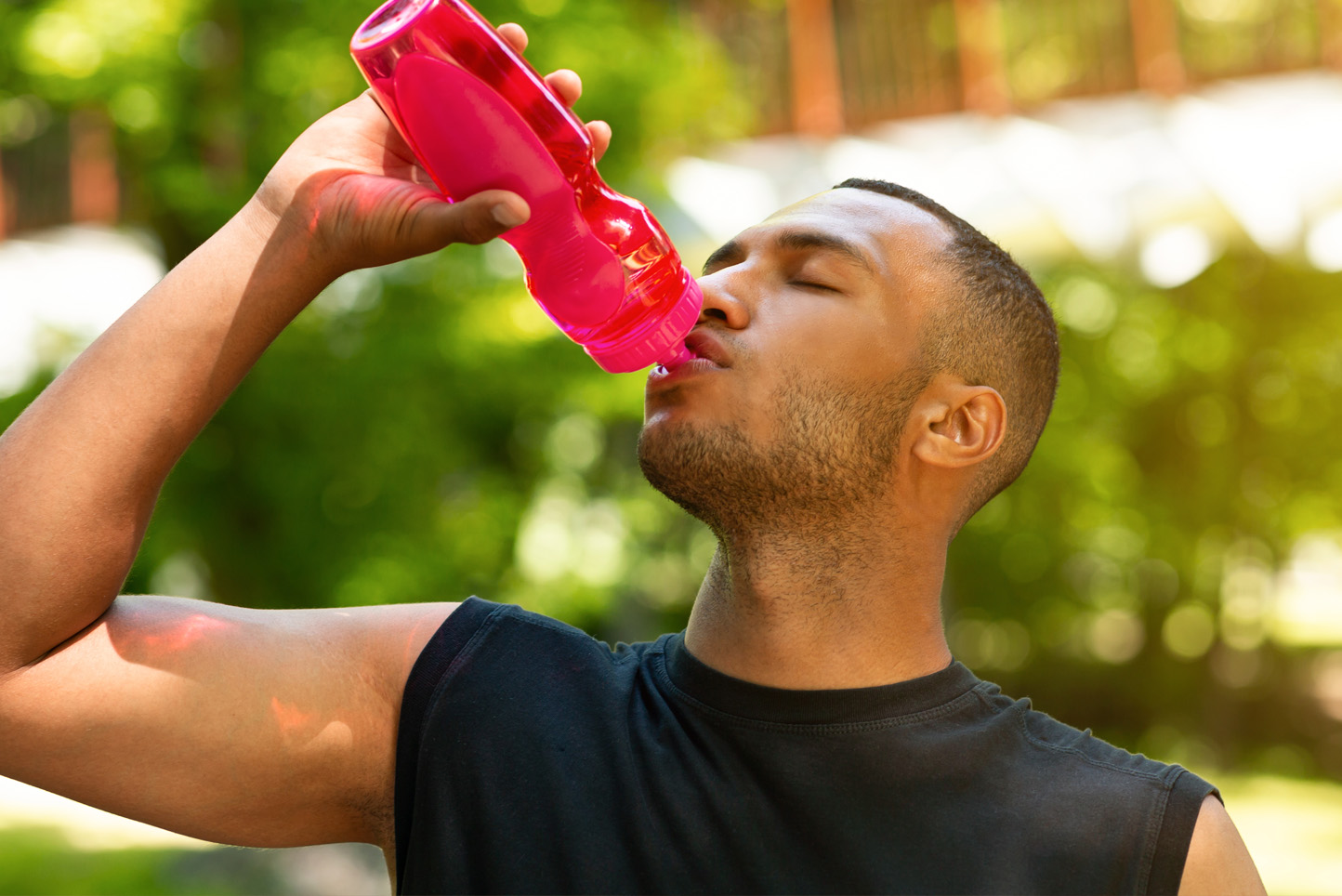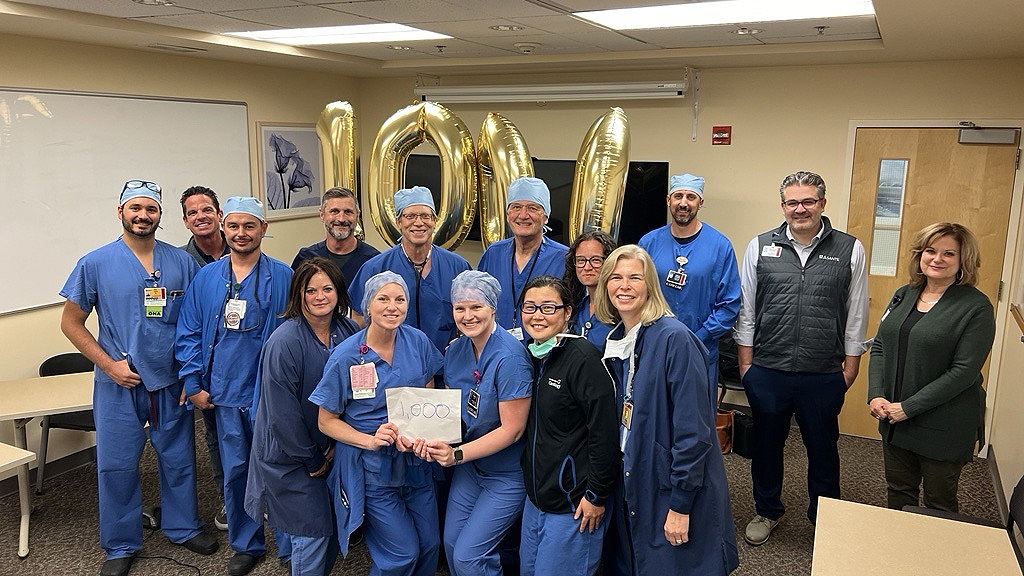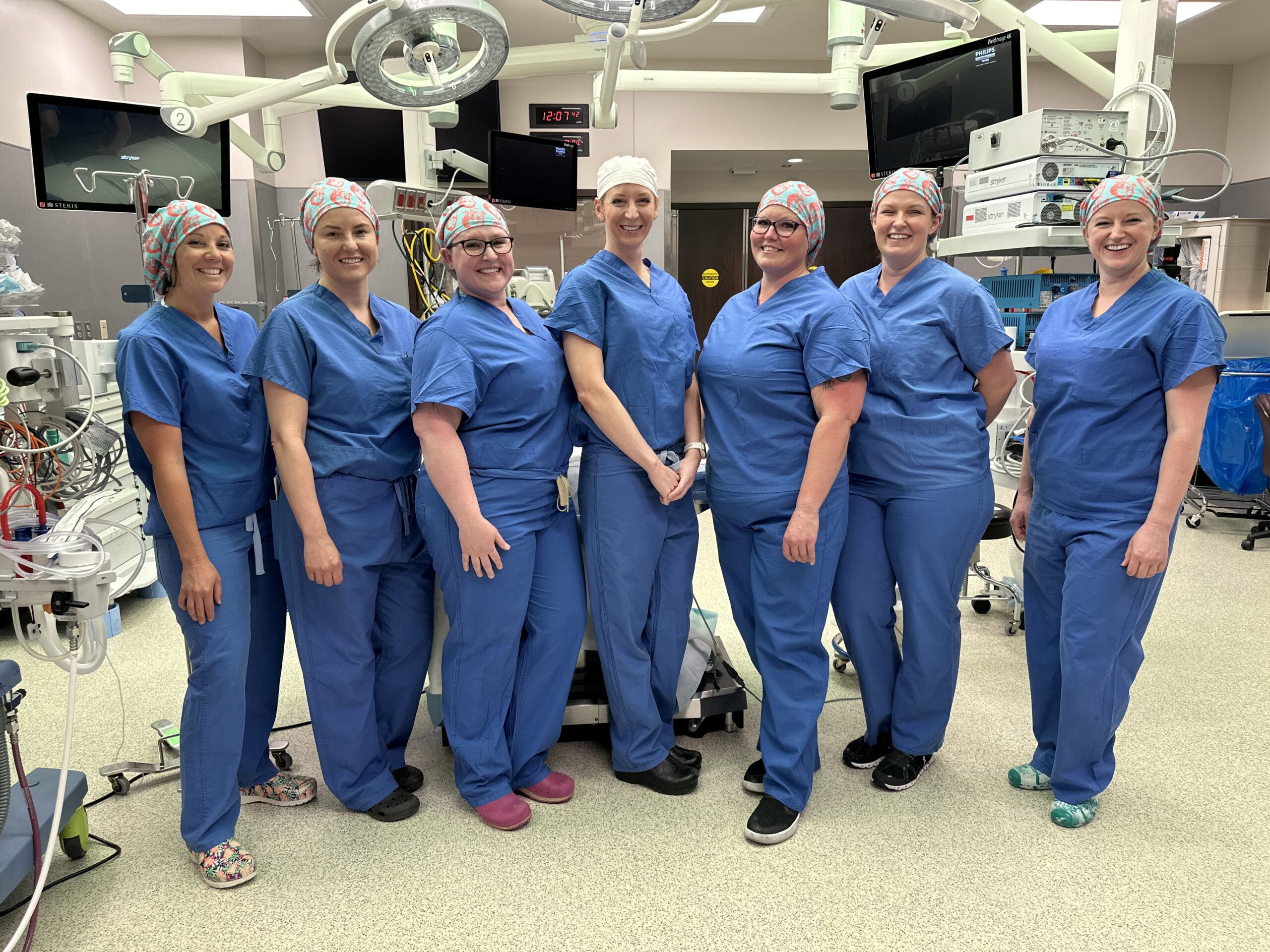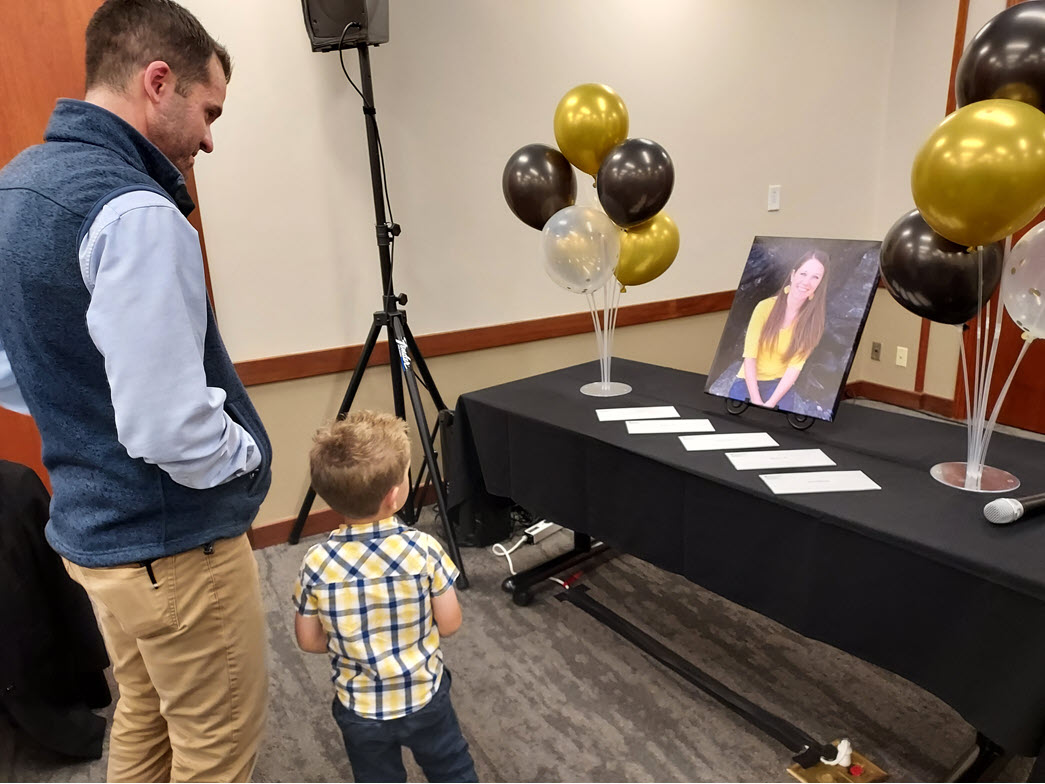Keeping well hydrated is essential to health and fitness.
During our hot summer months, it’s even more important. When you exercise and are well hydrated, there are great benefits. You have better performance from exercising at a lower body temperature. You improve your heart rate. Even brain function and your immune system improve.
Your hydration is affected by many things including temperature, sun exposure, humidity, exercise intensity, fluid intake and sweat loss.
Here is a simple three-step strategy:
- Start fluids before you exercise.
- Minimize losses during exercise.
- Replace fluid losses after exercise.
When choosing how to hydrate remember that although sports drinks have carbohydrates and electrolytes that can help with long exercise sessions (typically more than one hour), water is the best fluid to drink.
So, what is the right amount? Well, hydration needs are highly individualistic! Being aware of your own body, as an athlete and active person, can help you stay well hydrated. Here are some tips to stay on track.
Your hydration fluctuates, and there are many ways to track your status. Without special testing, the simplest means are monitoring thirst level and overall intake. The easiest way is monitoring urine color. Typically, a clear and very light yellow to almost completely clear urine is optimal. Especially in leading up to and in replenishing after exercise. If your urine output is a deep golden, dark yellow or even brownish color, hydrating should be a high priority.
You can also use your level-of-thirst, combined with a simple rule-of-thumb for athletes to help guide appropriate hydration. Typically, drinking about 200-400 mL (or about 6-12 ounces) of water every 15-20 minutes DURING exercise can help keep you well hydrated.
Remember, many factors influence hydration. Inadequate hydration can lead to cramping or even heat illness. If you are always low on fluids, it can lead to other very serious health conditions. Following the three-step method, thinking ahead, monitoring your intake and output, as well as listening to your body, can lead to healthy and safe summertime activity.
Ian Hallows, MD is dual board-certified in Family Medicine and Primary Care Sports Medicine with Asante Family Medicine-Grants Pass. He is committed to caring for patients of all ages and has specialized training in treating young athletes.









